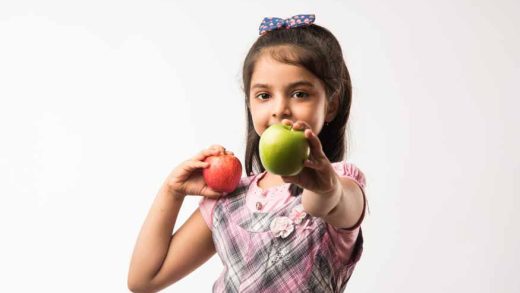Personalised learning is a new and improved way of teaching. It’s not like the usual one-size-fits-all approach. Instead, it understands that each child is different, with unique ways of learning, interests, and strengths. Personalised learning customises education to fit each child’s needs. In this article, we’ll explore what personalised learning is and why it’s important for kids. We’ll see how it affects their learning journey and overall development.
What is Personalised Learning?
Personalised learning is an instructional approach to tailor education. It meets each student’s individual needs, interests, and learning styles. It moves away from the traditional one-size-fits-all model of education. It embraces a more flexible and student-centred approach. In personalised learning, the pace, content, and learning method are customised. It accommodates the diverse needs of students, recognising that each learner is unique.
Key features of personalised education include:
- Individualised Pace
- Adaptive Content
- Varied Learning Styles
- Flexible Learning Environments
- Student Choice and Autonomy
- Continuous Assessment and Feedback
- Goal Setting and Reflection
- Collaborative Learning Opportunities
- Adaptability to Special Needs
- Technology Integration
Students progress through the curriculum at their own pace. This allows for a more in-depth exploration of topics of interest. It also provides more support in areas where a student may need more time.
Learning materials and content are tailored for individual students. They are customised as per their abilities, learning preferences, and interests. This ensures that the content is engaging, relevant, and suitable for each individual.
Personalised learning recognises and accommodates diverse learning styles. It considers how a student learns best through various mediums. These mediums include visual aids, auditory instruction, hands-on activities, or a combination of them.
Learning can take place in various settings, both inside and outside the classroom. Technology often plays a role in providing flexible access to educational resources. It allows students to learn at any time and from any location.
Students are given choices in their learning journey. They may have options in selecting topics, projects, or learning activities. They are based on their interests and preferences. It fosters a sense of ownership and autonomy.
Assessment is ongoing and provides real-time feedback to both students and educators. This allows for adjustments in the learning path. It ensures that students are mastering concepts before moving on to new material.
Students are involved in setting learning goals and regularly reflect on their progress. This process encourages metacognition. It helps students develop a deeper understanding of their learning processes.
Personalised learning does not mean isolation. It often incorporates collaborative activities, group projects, and peer interactions. It promotes social skills, teamwork, and a sense of community.
The approach is adaptable to accommodate students with diverse abilities and special needs. Personalised education provides appropriate support and resources for every learner to succeed.
Technology is frequently used to provide personalised learning. It includes educational software, online resources, and digital tools. They enable adaptive learning experiences, personalised assessments, and tailored content delivery.
Important Reasons Why Kids Need Personalised Learning
Personalised learning aims to create a more student-centric educational experience. It addresses the unique strengths, challenges, and interests of each learner. This approach reflects a shift towards more dynamic and responsive models of education. It better prepares students for success in a rapidly changing world.
Here are 10 benefits of personalised learning that prove the importance of personalised learning essential for children’s education.
- Individualised Pace of Learning
- Catering to Diverse Learning Styles
- Addressing Varied Skill Levels
- Encouraging Intrinsic Motivation
- Enhancing Critical Thinking Skills
- Flexibility for Special Needs
- Promoting Collaborative Learning
- Preparing for Real-world Challenges
- Fostering a Love for Learning
- Building Confidence and Independence
Personalised learning allows children to progress at their own pace. Students can delve deeper into topics of interest. It ensures that they fully grasp concepts before moving on. They spend more time on challenging subjects without feeling rushed.
Every child learns differently. Personalised learning accommodates diverse learning styles for visual, auditory, and kinesthetic learners. This customization enhances comprehension and retention of information.
Children often have different skill levels across subjects. Personalised education provides support for areas where a child may need more help. It allows them to excel in subjects where they are more advanced.
Tailoring lessons to a child’s interests and passions fosters intrinsic motivation. Students are more engaged in topics they find personally relevant. So they are more likely to take ownership of their learning journey.
Personalised learning encourages problem-solving and critical thinking. It presents challenges and projects aligned with a child’s interests. That stimulates curiosity and develops analytical skills.
Children with special needs require individualised attention. Personalised learning allows educators to tailor instruction to accommodate diverse abilities. It ensures that every child has the support they need to thrive academically.
Personalised learning does not mean isolation. It can incorporate collaborative activities that encourage students to work together. It lets them share ideas and learn from each other, fostering essential social skills.
The real world is diverse, and personalised education mirrors this reality. It equips children with adaptability and problem-solving skills. They need to navigate an ever-changing world, preparing them for future challenges.
When education is tailored to a child’s interests, it can ignite a passion for learning. Personalised learning creates a positive association with education. It makes it an enjoyable and fulfilling experience.
Personalised learning empowers children to take control of their learning. Students achieve success at their own pace. So they build confidence and develop a sense of independence. It lays a solid foundation for a lifelong love of learning.
Diversity is celebrated in the world. Personalised learning stands as an educational philosophy. It embraces the uniqueness of each child. It recognises and caters to individual needs, interests, and abilities. It ensures that every child has the opportunity to reach their full potential. We continue to evolve in our understanding of effective education. Personalised education is a crucial component in shaping empowered, curious, and confident learners.
At Kangaroo Kids International Preschool, we always put emphasis on personalised learning so that kids can learn better. To know more about our curriculum, contact us today!









